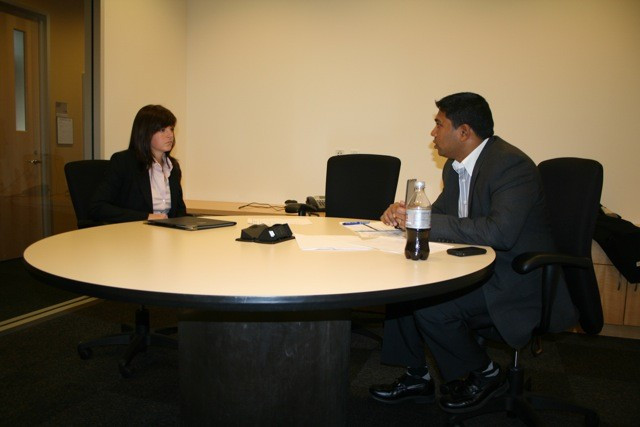Ten common mistakes to avoid in a job interview
Be prepared, be confident and look like you want the job from the moment you walk into the interview room.

There are many reasons why candidates don't make it past an interview. They may have been beaten by someone who usually managed to tick every box in terms of qualifications, experience and personality, or they may simply be incompetent.
But to give yourself the best chance of getting the role we've crowdsourced the most common mistakes made by candidates through Quora, the global question and answer network. Here are 10 things to avoid during an interview.
Don't start the interview with a compliant
If an interviewer asks how was your trip to their office? All the interviewer really wants to hear is "fine thanks."
The interviewer does not expect to hear the train journey was a nightmare, or the tailbacks on the motorway were endless. The job you are applying for probably expects you to solve problems and take new experiences in your stride. Don't let a complaint set the tone for your interview.
Don't appear too confident or too nervous
This is a difficult one to get right, and take a number of interviews to pitch correctly. If you appear too nervous they'll think you're not confident enough to do the job. However, appearing too confident will make them think you won't fit into the team.
Be prepared
If you only take one thing from this feature, it should be this. In today's information age, there is absolutely no excuse for knowing too little about the company you intend to work for. Make sure you know the firm, and its rivals. Read up about the people who will interview you on the company website, or on LinkedIn.
Internet entrepreneur Monica Bansal says: "What is the company doing today? What is its share in the market? What are its growth plans? And where do you fit in the overall structure?"
If you can get to talk to someone inside the firm, do so. That will tell you about how the company's culture really works in practice.
Don't lie
Nine times out of ten the interviewer is asking a question that he knows the answer to. If you don't know the answer to a question it is best to admit it rather than flannel or fib – that is a quick way to alienate your interviewer.
It is fine to gloss over unflattering things, but never tell a lie. As Mark Twain said: "If you tell the truth, you never have to remember anything".
Avoid well-rehearsed answers
This may become a problem if you are having a series of interviews over a short period. But tailor your answers to the specific circumstance of the company.

Philadelphia-based recruiter Vanessa Johnson says: "I have interviewed people that were so rehearsed it was obvious they had memorized answers to certain questions. I was not having an authentic interaction with them and it was a turn off."
Don't complain about your current employer
Huhman says: "Although you may be in this interview because of a bad experience elsewhere, it's important not to bring up your 'dirt' from the last job you were at. It's an instant red flag for the hiring manager and makes you look unprofessional. To be frank, just don't do it."
Dress appropriately.
For men, this means a suit and tie. No designer stubble. For women this means skirt or trouser suit. Polished shoes for both sexes. We have become a dress-down society, but in an interview – be in no doubt that you are there to impress.
Don't forget to ask questions
This will show you are interested in the company, not that you are an awkward customer.
Have some questions about how a typical day would look. Ask about staff benefits and whether there are any activities outside work. Look as though you are interested and ready to join the business.
Failing to sell yourself
Throughout the interview, be aware that are trying to get across the set of skills you will bring to the job.
Tech PR recruiters Come Recommended's Heather Huhman says: "Make it easy for the interviewer by clearly connecting the dots between your experience and skills and the position at hand. Come into the interview with confidence that you could be the right fit for the job."
Be clear what you are being asked
Interviewers are in charge, but they aren't infallible. If they mumble, or ask an unclear question, ask them to repeat or clarify. Otherwise you risk going down a lengthy awkward tangent.
Apologies
These are to be avoided. Don't apologise for yourself, for others, or for a presentation you are about to give. You are expected to give a good, confident account of yourself. Unless you accidentally trip up the interviewer there is nothing to be sorry about.
© Copyright IBTimes 2025. All rights reserved.





















